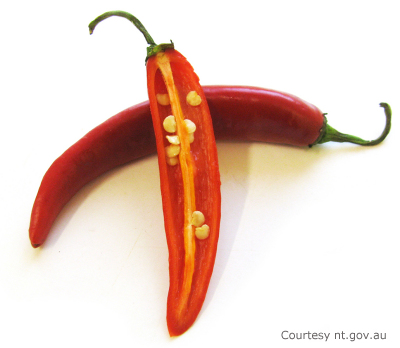Beta-Carotene

Beta-carotene is the carotene best able to turn into vitamin A (retinol). Alpha-carotene and the less-investigated xanthophyll beta-cryptoxanthin also can turn into vitamin A, but at half the rate. Beta-carotene is the most abundant carotene found in plants. When researchers began to study the carotenoids, beta-carotene was one of the first.
The ability to create vitamin A is central to the mechanics of vision in low light and the health of eye cell tissue. See the discussion on vitamin A for more information.
Interestingly while beta-carotene is helpful for most people looking to improve vision, a flawed study1 suggested this was not true for smokers and others with lung conditions. Several studies in the past demonstrated that both former asbestos workers and people who smoke have a greater risk of lung cancer if they take beta-carotene as a supplement, and that is not true of large amounts of beta-carotene from food.
Eye disease. Researchers find that the carotenoids, generally, and including beta-carotene support better vision. Higher intakes of beta-carotene from food, when coupled with reductions in cholesterol intake from food, appear to reduce damage from oxidative stress-related eye disease.2 Teen-agers with cystic fibrous who had low levels of alpha and beta carotene had poor night vision.3
Cataract. Early studies suggested that beta-carotene may provide protection against cataracts; some of these included multiple nutrients in addition to beta-carotene. Two studies in 2001 found that people with the highest blood concentrations if either beta- or alpha-carotene were 30-50% less likely to develop nuclear cataracts, which are those located in the central part of the lens. 4, 5
But a meta-analysis (a review of a number of research studies) in 2013 contradicts that. The reviews evaluated 13 studies involving nearly 19,000 patients. They reported that changes to lens opacity due to beta-carotene were not statistically significant.
Metabolic syndrome. Characterized by high blood pressure, blood sugar, and cholesterol as well as too much waist fat, metabolic syndrome is lowest in men consuming the greatest levels of beta-carotene.6
Night blindness. In pregnant and postpartum mothers supplementing with either vitamin A or beta-carotene improved but did not eliminate night blindness.7
Sunburn. Beta-carotene may offer protection against sunburn. Subjects in a 10 week study who took beta-carotene supplements had less sunburn, and the longer they'd been taking beta-carotene, the greater the protection.
Food sources. The best sources for beta-carotene are red chili peppers, dark green lettuce, spinach and kale. Good food sources include cantaloupe, mangoes, papaya, carrots, sweet potatoes, and pumpkin. Beta-carotene gives orange foods their color; in fact, the word carotene comes from the Latin word for carrot.
Daily need. 15mg per day or vitamin A palmitate, or a combination of both.
Caution: Beta-carotene is possibly unsafe taken in large doses for a long time although its vitamin A precursor status does not increase the risk of vitamin A toxicity. Research is contradictory as to whether beta-carotene increases the risk of lung cancer in patients who smoke (smoked), or were exposed to asbestos. There is also some concern that it may interfere with healing after angioplasty.8
Furthermore beta-carotene can decrease effectiveness of some medications, such as for lowering cholesterol,9 and weight loss.10 Other medications and alcohol can decrease absorption of beta-carotene.
1. Shareck, M., Rousseau, M.C., et al, (2017), Inverse Association between Dietary Intake of Selected Carotenoids and Vitamin C and Risk of Lung Cancer, Front Oncol. 2017 Feb 28;7:23
2. Braakhuis, A., Ramon, R., et al, (2017), The Association between Dietary Intake of Antioxidants and Ocular Disease, Disease, Jan. 30:5(1).
3. Huet, F., Semama, D., et al, (1997), Vitamin A deficiency and nocturnal vision in teenagers with cystic fibrosis, Eur J Pediatr., Dec;156(12):949-51
4. Gale, C.R., Hall, N.F., Phillips, D.I., et al., (2001) Plasma antioxidant vitamins and carotenoids and age-related cataract, Ophthalmology
5. Jacques, P.F., Chylack Jr., L.T., Hankinson, S.E. , et al., (2001) Long-term nutrient intake and early age-related nuclear lens opacities, Archives of Ophthalmology
6. Ibid. Sugiura.
7. Christian, P., West, K.P., Jr., et al (1998), Vitamin A or beta-Carotene Supplementation Reduces but Does Not Eliminate Maternal Night Blindness in Nepal, J. Nutr., September, vol. 128 no.
8. WebMD.com, Beta-Carotene Side Effects & Safety. Retrieved from https://www.webmd.com/vitamins-supplements/ingredientmono-999-beta-carotene.aspx?activeingredientid=999&
9. Ibid. WebMD, Beta-Carotene
10. University of Maryland Medical Center, (2012), Possible Interactions with Beta-Carotene, May.
 info@naturaleyecare.com
info@naturaleyecare.com



 Home
Home



 Vision
Vision Vision
Vision



 Health
Health Health
Health Research/Services
Research/Services Pets
Pets About/Contact
About/Contact


